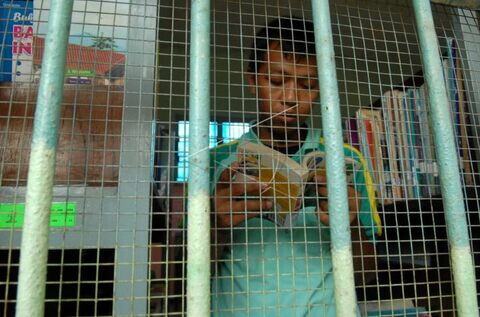
The burgeoning rate of juvenile delinquency in Depok, a satellite city grappling with the sprawl of Jakarta, has spurred a drastic proposition from West Java Governor Deddy Mulyadi: the implementation of a Chinese-style military rehabilitation program for young offenders. While the impetus behind this proposal – to curb escalating youth crime involving drug abuse, assault, and violent street brawls – is understandable, the proposed solution raises serious concerns regarding human rights, the efficacy of such methods, and the role of the state in shaping young lives.
Governor Mulyadi's suggestion, inspired by what he perceives as a successful model in China, envisions a mandatory six-month to one-year stint of military or police-led training for adolescents who have run afoul of the law. He cites the Chinese system, where minors exhibiting problematic behavior are mandated to undergo special education and rehabilitation, often in correctional facilities with an educational focus or vocational training schools. He even alludes to anecdotal evidence of Chinese parents voluntarily enrolling their children in military training camps for character development, claiming that this approach yields "more energetic and optimistic" youths with a clearer "direction in life."
However, the direct transplantation of a model from one socio-political context to another is fraught with peril. China's approach to juvenile justice operates within a vastly different legal and human rights framework than Indonesia's. While the SCMP report suggests a focus on education and rehabilitation for minor offenses in China, the specter of more coercive methods within their broader correctional system cannot be entirely dismissed. Importing a "military rehabilitation" model inherently carries the risk of prioritizing discipline and obedience over genuine rehabilitation and the addressing of the root causes of criminal behavior.
The situation in Depok is undeniably serious. The governor paints a grim picture of rampant youth violence, drug use, and a general defiance of authority. The annual street fights involving hundreds of teenagers, sometimes with fatal consequences, underscore the urgency of finding effective solutions. Yet, the proposed military-style intervention risks treating the symptoms rather than the underlying societal issues that contribute to juvenile crime, such as poverty, lack of educational opportunities, broken families, and the influence of negative peer groups.
While Governor Mulyadi emphasizes the voluntary nature of the program, contingent on parental consent, this assurance offers limited comfort. The desperation of parents struggling to control violent or wayward children might make them feel they have little choice but to agree to such a program, even if its long-term benefits and potential psychological impact are uncertain. The enthusiastic applause from parents at the proposal, as the governor noted, likely reflects their frustration and a yearning for any intervention that promises to restore order, rather than a considered endorsement of military-style rehabilitation.
Furthermore, the proposal has already drawn criticism from within Indonesia's political establishment. Central Java Governor Ganjar Pranowo rightly points out the existence of established legal frameworks for dealing with juvenile offenders, noting that criminal responsibility begins at age 12. His argument that the existing laws should be enforced rather than creating a parallel, potentially more punitive system, carries significant weight. Overlapping and potentially conflicting systems of justice can lead to confusion, inconsistencies in application, and a weakening of the rule of law.
The effectiveness of military-style rehabilitation programs in addressing juvenile crime is also highly debatable. While such programs might instill discipline and obedience in the short term, they often fail to address the underlying psychological, social, and economic factors that contribute to delinquent behavior. True rehabilitation requires a more holistic approach that includes therapy, counseling, educational support, vocational training, and family involvement. A purely militaristic approach risks creating resentment, trauma, and a cycle of recidivism.
Moreover, the potential for human rights abuses within such a system cannot be ignored. Confining adolescents to military or police-run facilities for extended periods, even with parental consent, raises concerns about their freedom, autonomy, and access to education and other essential services. The potential for harsh disciplinary measures and the lack of independent oversight are also significant risks. International human rights standards emphasize the importance of child-friendly justice systems that prioritize rehabilitation, reintegration, and the best interests of the child.
Instead of directly importing a potentially problematic model from another country, Indonesia should focus on strengthening its existing juvenile justice system. This includes investing in community-based rehabilitation programs, improving educational and vocational opportunities for at-risk youth, providing support for families struggling with troubled adolescents, and ensuring that law enforcement agencies are equipped to handle juvenile offenders in a manner that is both firm and restorative.
The surge in juvenile crime in Depok demands a comprehensive and evidence-based response. While the desire for swift and decisive action is understandable, resorting to a potentially heavy-handed and unproven military-style approach risks doing more harm than good. Indonesia must prioritize solutions that address the root causes of juvenile delinquency, uphold the rights of young people, and offer genuine pathways to rehabilitation and reintegration into society. The allure of a quick fix should not overshadow the need for thoughtful, humane, and ultimately more effective long-term strategies.
[Copyright (c) Global Economic Times. All Rights Reserved.]






























